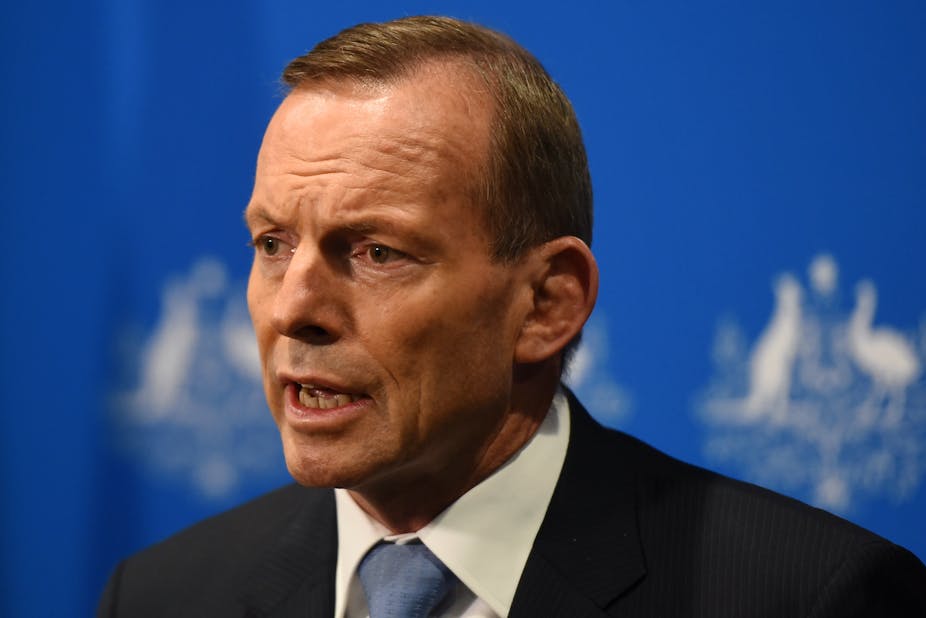The government goes into next week’s budget trailing Labor on a two-party basis but satisfaction with Prime Minister Tony Abbott has risen to a seven-month high in the latest Newspoll.
Abbott is also now level with Bill Shorten as better prime minister.
The ALP’s two-party lead increased from 51-49% three weeks ago to 52-48% in this poll, reported in Tuesday’s Australian.
The Coalition’s primary vote fell 2 points to 39%; the Labor vote was down a point to 35%.
But the Coalition’s primary vote is 4 points up on its February level, while Labor’s is 6 points down from then.
The opposition has been ahead in two-party terms for a year in Newspoll, as the government reeled from the disastrous 2014 budget.
Despite the slight worsening of the Coalition vote in this poll, Abbott can argue to his colleagues that he has been clawing back and pegging back Shorten. Next week’s budget, which Abbott is desperate to keep as voter-friendly as possible, will be crucial in whether he continues to consolidate his position or things start to unravel again.
The cabinet will have a tele-conference on Thursday on the budget, with ministers being briefed and final tick-offs given.
With Deloitte Access Economics projecting a deficit next financial year of more than A$45 billion, Abbott said on Monday the budget would have “a credible path back to surplus”, but indicated it would not have a firm date on delivering a surplus.
Abbott’s Newspoll satisfaction rating rose 4 points to 37%, while dissatisfaction with him fell 3 points to 56%.
Shorten’s satisfaction is up a point to 34%; his dissatisfaction dropped a point to 50%. For the first time in seven months Abbott had a higher satisfaction than Shorten.
Abbott’s net satisfaction is minus 19 points; Shorten’s is minus 16 points.
The two leaders are tied on 38% as better prime minister. Abbott was down 2 points while Shorten had fallen 3 points.
Despite trying to minimise rows in this budget, the government is facing a revolt from pharmacists over its plan to allow chemists to discount the Pharmaceutical Benefits Scheme co-payment for scripts by $1.
This would save the government $400 million over five years, because the effect would be to extend the time it would take concessional patients to reach the safety net, when their prescriptions become free.
The co-payment for concessional cardholders is $6.10 and for general patients is $37.70.
The pharmacists are threatening not to sign a new pharmacy agreement if the government insists on bringing in the optional discount. In turn, if the pharmacists won’t agree the government is threatening not to renew the legislation that in general ensures a pharmacy can’t open within 1.5 kilometres of another one. The pharmacy agreement and the location provision need to be renewed by July 1.
The Pharmacy Guild argues that while the discount proposal might seem like a win-win for consumers, in fact it would hit the sickest people in the community and create regional disparities in the cost of subsidised medicines.
The government maintains the plan is not primarily about savings but designed to bring some consumer benefit and add an element of competition, which is severely restricted by the location rule.
As it seeks $3 billion in savings from the pharmaceutical supply chain, the government will also get savings on patent drugs, including through closing loopholes and applying discounts as patents move towards expiry. There will also be savings extracted in the area of generic drugs.
The government has already announced it will remove a range of medicines that are available over the counter from the PBS.

